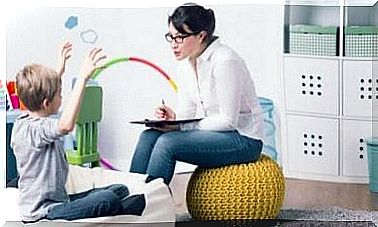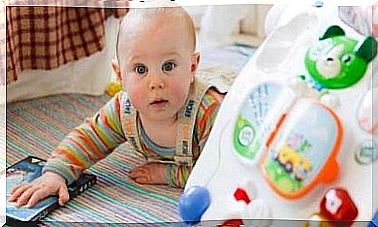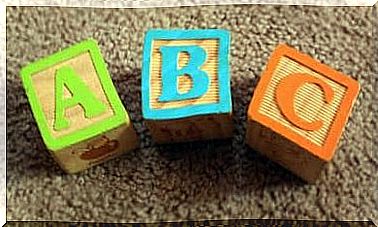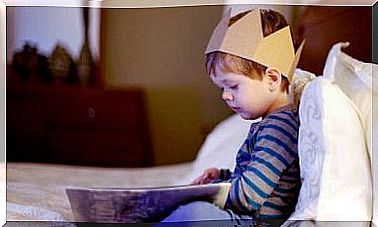Disrespectful Children: How To Behave?
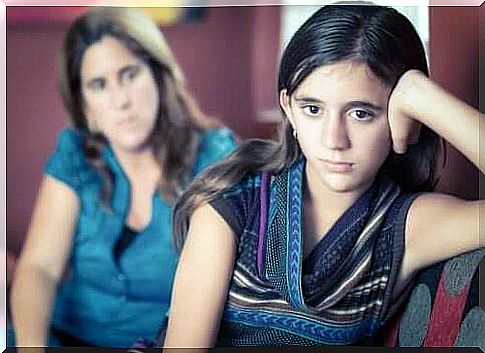
Every parent wants to have a peaceful and harmonious relationship with their children. However, tensions and conflicts can easily arise in everyday life, and sometimes we can feel that they are escaping our control. In this article, we present some strategies to adopt with disrespectful children.
Loving discipline
Contrary to what we may think, respect for parents is not innate. Instead, it is a value that must be transmitted and shaped from an early age. In addition to the child’s personality (which can be more or less capricious), the elements to establish a bond based on respect are discipline and love.
Although they may seem opposite concepts, firmness and tenderness can and should be complementary elements in education. Children need boundaries, clear and consistent rules to guide them on how to behave. A child who does not have these immovable directives will grow up in chaos and it will be much more difficult for him to regulate his conduct.
However, it is equally necessary that the relationship with our children be based on love and understanding. It is difficult for a child to learn to respect their parents if they do not receive the same treatment. Conversely, the little one is much more likely not to feel the need to challenge them if they perceive them as a source of love and security.

Disrespectful children, is that right?
First of all, we need to define exactly what disrespect is. Sometimes we perhaps forget that children are human beings with their own emotions, with their good and bad days. Like everyone, at times they feel tired, in a bad mood or don’t know how to manage their frustration.
If your children’s inappropriate behavior occurs sporadically, you need to try to put yourself in their shoes. Talk to them and try to understand what is happening to help them let off steam and prevent them from expressing themselves in any other way.
When the conduct is recurrent and significantly serious, however, it is necessary to intervene. Among the actions to pay more attention to are:
- Children constantly challenge. They deliberately disobey to strain our authority, generating a power struggle.
- They demand that we fulfill their wishes right away, ignoring our refusals.
- They present outbursts of anger during which they throw or break objects with the intent of getting what they want.
- They shout or use hurtful words when we try to impose a rule on them.
How to deal with disrespectful children?
Be an example
The primary strategy for inculcating respectful conduct in your children is to be a model of it. It is not easy, as it requires the willingness to remain calm in the presence of a conflict situation. It is essential not to lose your temper with your children and, of course, not to attack them either physically or verbally.
Furthermore, parents must maintain the integrity necessary to apologize to their children when they have made a mistake. By normalizing this conduct, we will show ourselves more human and present repentance as a courageous interpersonal attitude.
Establish clear boundaries
It is really important that, as parents, you establish rules of conduct. The child must be clear about which actions are completely unacceptable and which are simply unwanted. Likewise, he must know that if he exceeds the imposed limits, he will have to face the consequences. The same is also true with teenagers.
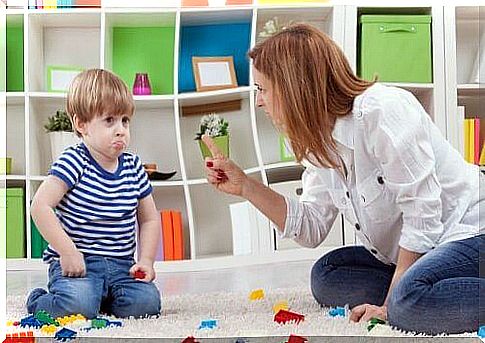
As for the application of these rules, it is important to keep in mind that this must be done consistently. In other words, we need to make sure they are always respected. If options are allowed, we will lose credibility and validity.
The consequences deriving from non-compliance must be adopted as soon as possible after the manifestation of the unsuitable conduct. In this way, the association will be established more easily.
Listening and conversing with disrespectful children
Consequences don’t have to be manifested in the form of revenge or punishment, but also through gentle dialogue about the principle that every action has an impact. Try to always be present and available to your children, ask them how they feel and express your feelings. Make sure you come to an agreement.
The best way to reach your children is always that of unconditional love and respect. While there are faster or easier ways, this will undoubtedly forge a healthy emotional bond between parents and children.

